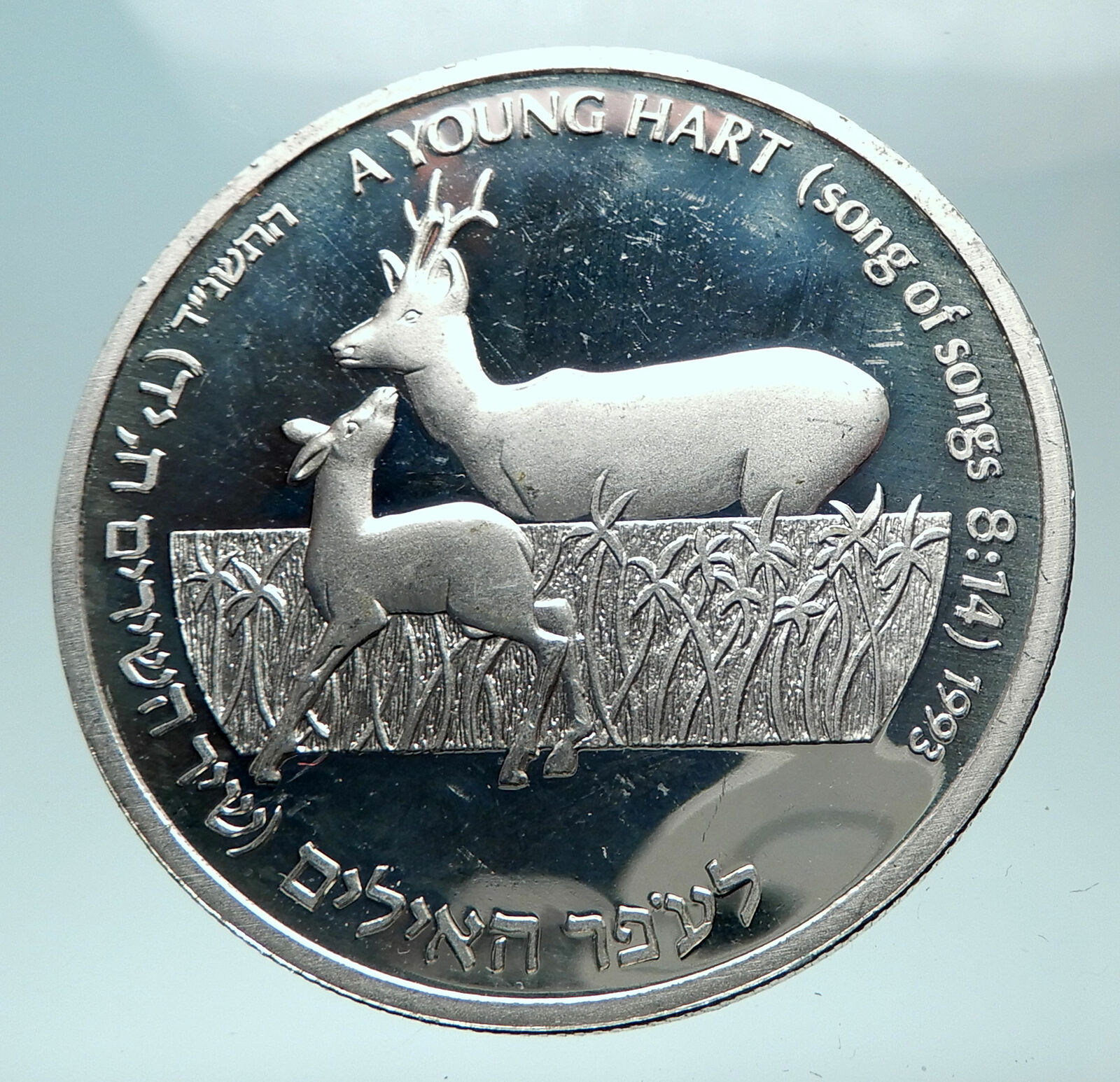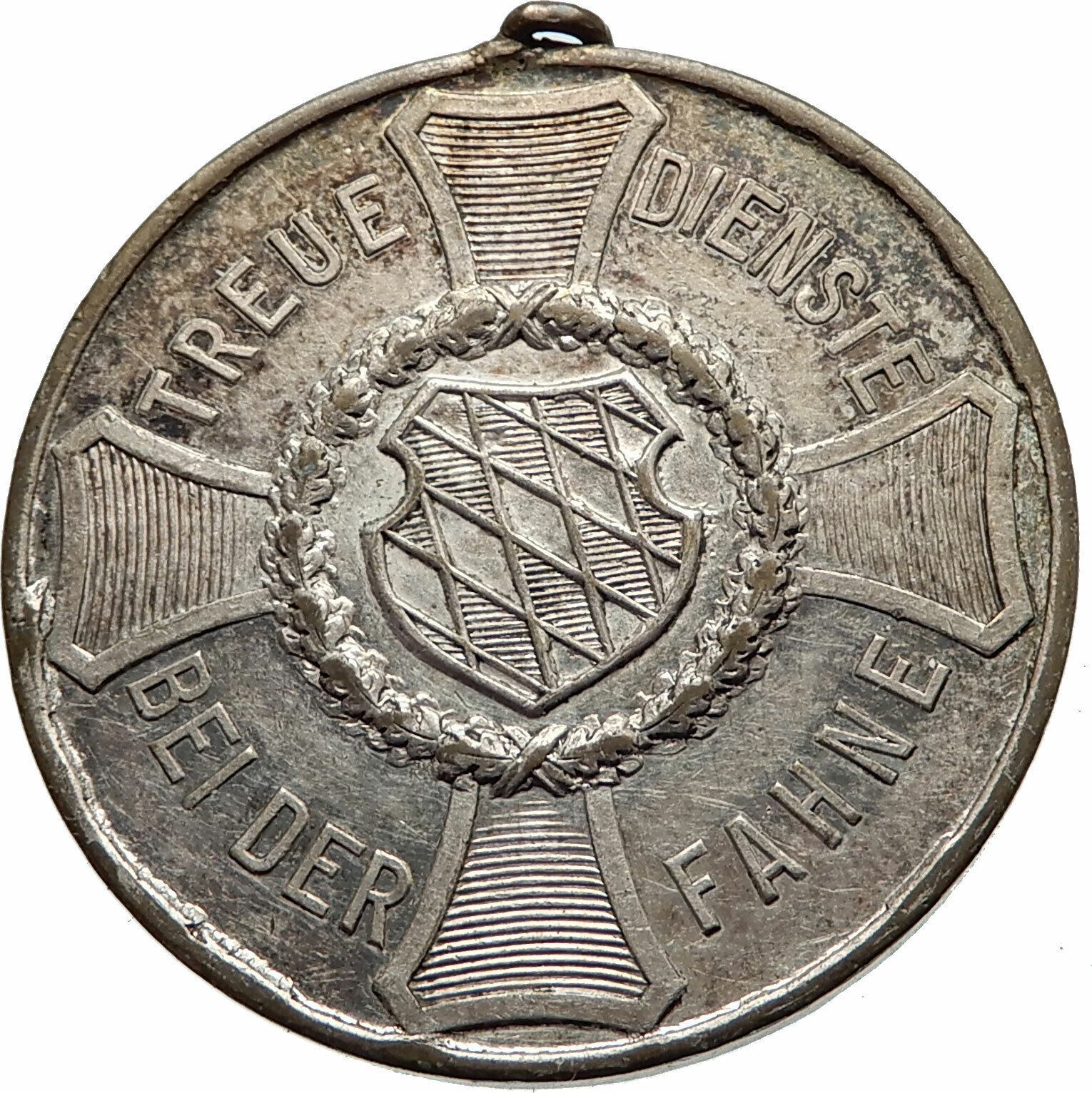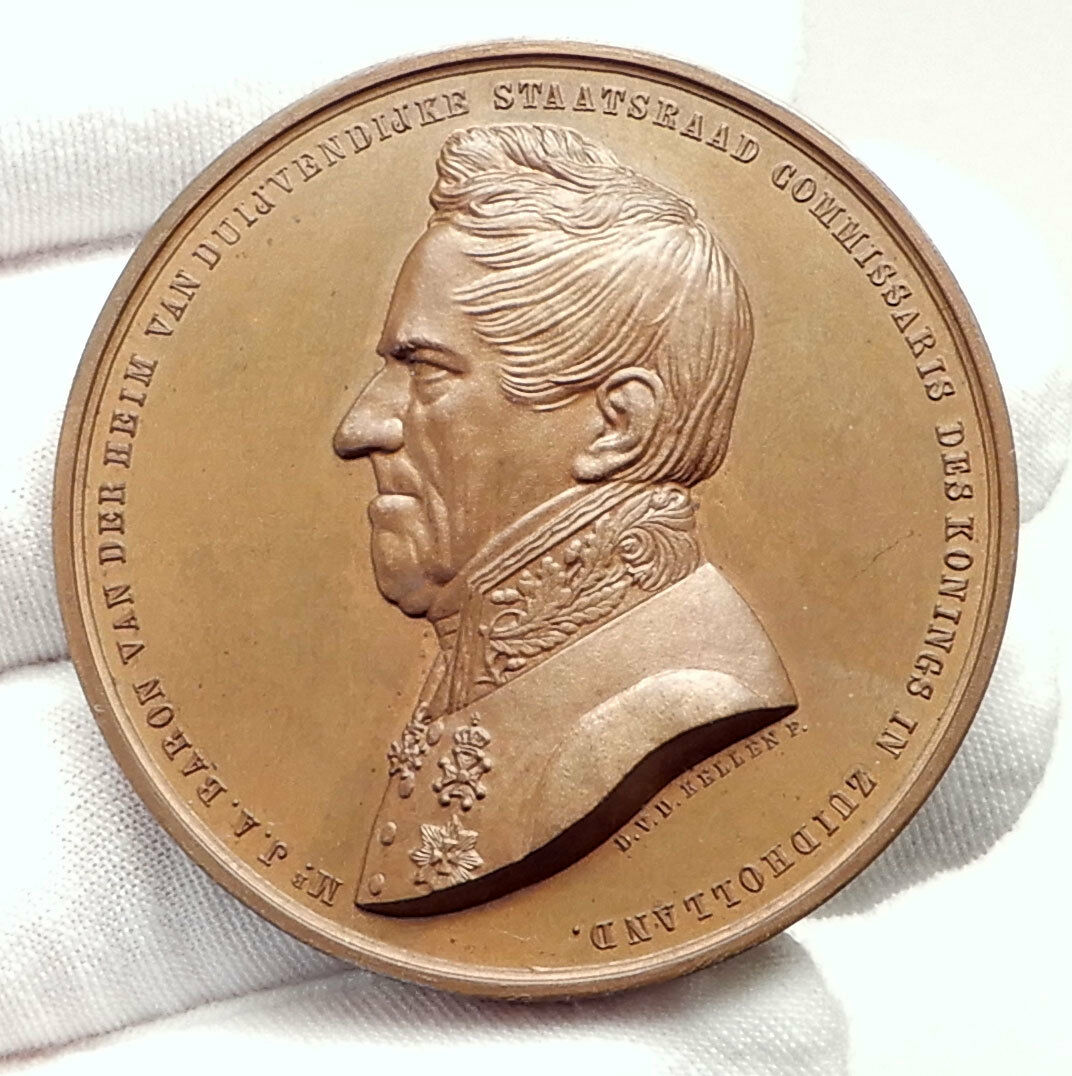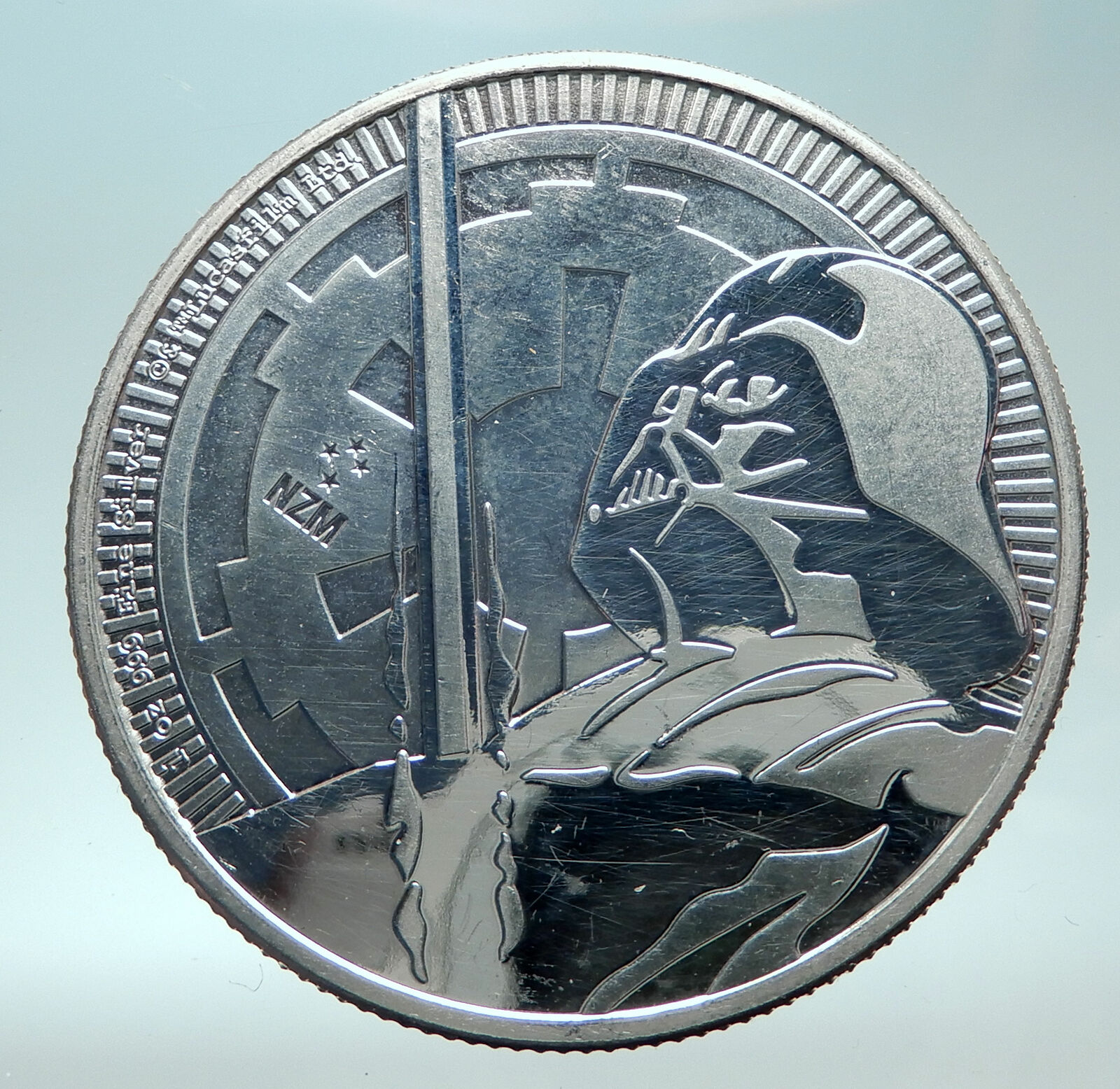|
France
Jacques Auguste de Thou
1817 Bronze Medal 40mm (37.16 grams)
J. AUGUSTE DE THOU GAYRARD, Jacques facing right.
NE A PARIS EN M.D.LIII. MORT EN M.DC.XVII. GALERIE METALLIQUE DES GRANDS HOMMES FRANCAIS 1817, Inscription in eight lines.
You are bidding on the exact item pictured, provided with a Certificate of Authenticity and Lifetime Guarantee of Authenticity.
 Jacques Auguste de Thou (Thuanus) (8 October 1553, Paris – 7 May 1617, Paris) was a French historian, book collector and president of the Parliament of Paris. Jacques Auguste de Thou (Thuanus) (8 October 1553, Paris – 7 May 1617, Paris) was a French historian, book collector and president of the Parliament of Paris.
Jacques Auguste de Thou was the grandson of Augustin de Thou president of the Parliament of Paris (d. 1544), and the third son of Christophe de Thou (d. 1582), premier président of the same parlement, who had had ambitions to produce a history of France. His uncle was Nicolas de Thou, Bishop of Chartres (1573–1598). With this family background, he developed a love of literature, a firm but tolerant piety, and a loyalty to the Crown.
At seventeen, he began his studies in law, first at Orléans, later at Bourges, where he made the acquaintance of François Hotman, and finally at Valence, where he had Jacques Cujas for his teacher and Joseph Justus Scaliger as a friend. He was at first intended for the Church; he received the minor orders, and on the appointment of his uncle Nicolas to the episcopate succeeded him as a canon of Notre-Dame de Paris.
During the next ten years he seized every opportunity for profitable travel. In 1573 he accompanied Paul de Foix on an embassy, which enabled him to visit most of the Italian courts; he formed a friendship with Arnaud d’Ossat (afterwards Bishop of Rennes, bishop of Bayeux and a cardinal), who was secretary to the ambassador. In the following year he formed part of the brilliant cortege which brought King Henry III back to France, after his flight from his Polish kingdom. He also visited several parts of France, and at Bordeaux met Michel de Montaigne. On the death of his elder brother Jean (5 April 1579), who was maître des requêtes to the parlement, his relations prevailed on him to leave the Church, and he entered the parlement and got married (1588). In the same year he was appointed conseiller d’état. He served faithfully both Henry III and Henry IV, because they both represented legitimate authority.
He succeeded his uncle Augustin as président à mortier (1595), and used his authority in the interests of religious peace. He negotiated the Edict of Nantes with the Protestants, while in the name of the principles of the Gallican Church he opposed the recognition of the Council of Trent.
After the death of Henry IV, de Thou had a disappointment; the queen regent, Marie de Medici, refused him the position of premier président of the parlement, appointing him instead as a member of the Conseil des finances intended to take the place of Sully. This was to him a demotion; he continued, however, to serve under her, and took part in the negotiations of the treaties concluded at Ste Menehould (1614) and Loudun (1616). He died in Paris. His son was François Auguste de Thou, who was executed by King Louis XIV and Cardinal Richelieu, as an accomplice with Henri Coiffier de Ruzé, Marquis of Cinq-Mars in 1642.
  France, officially the French Republic (French: République française), is a sovereign state comprising territory in western Europe and several overseas regions and territories. The European part of France, called Metropolitan France, extends from the Mediterranean Sea to the English Channel and the North Sea, and from the Rhine to the Atlantic Ocean. France spans 640,679 square kilometres (247,368 sq mi) and has a total population of 67 million. It is a unitary semi-presidential republic with the capital in Paris, the country’s largest city and main cultural and commercial centre. The Constitution of France establishes the state as secular and democratic, with its sovereignty derived from the people. France, officially the French Republic (French: République française), is a sovereign state comprising territory in western Europe and several overseas regions and territories. The European part of France, called Metropolitan France, extends from the Mediterranean Sea to the English Channel and the North Sea, and from the Rhine to the Atlantic Ocean. France spans 640,679 square kilometres (247,368 sq mi) and has a total population of 67 million. It is a unitary semi-presidential republic with the capital in Paris, the country’s largest city and main cultural and commercial centre. The Constitution of France establishes the state as secular and democratic, with its sovereignty derived from the people.
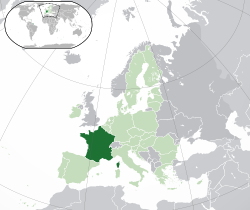
During the Iron Age, what is now Metropolitan France was inhabited by the Gauls, a Celtic people. The Gauls were conquered in 51 BC by the Roman Empire, which held Gaul until 486. The Gallo-Romans faced raids and migration from the Germanic Franks, who dominated the region for hundreds of years, eventually creating the medieval Kingdom of France. France emerged as a major European power in the Late Middle Ages, with its victory in the Hundred Years’ War (1337 to 1453) strengthening French state-building and paving the way for a future centralized absolute monarchy. During the Renaissance, France experienced a vast cultural development and established the beginning of a global colonial empire. The 16th century was dominated by religious civil wars between Catholics and Protestants (Huguenots).
France became Europe’s dominant cultural, political, and military power under Louis XIV. French philosophers played a key role in the Age of Enlightenment during the 18th century. In 1778, France became the first and the main ally of the new United States in the American Revolutionary War. In the late 18th century, the absolute monarchy was overthrown in the French Revolution. Among its legacies was the Declaration of the Rights of Man and of the Citizen, one of the earliest documents on human rights, which expresses the nation’s ideals to this day. France became one of modern history’s earliest republics until Napoleon took power and launched the First French Empire in 1804. Fighting against a complex set of coalitions during the Napoleonic Wars, he dominated European affairs for over a decade and had a long-lasting impact on Western culture. Following the collapse of the Empire, France endured a tumultuous succession of governments: the monarchy was restored, it was replaced in 1830 by a constitutional monarchy, then briefly by a Second Republic, and then by a Second Empire, until a more lasting French Third Republic was established in 1870. By the 1905 law, France adopted a strict form of secularism, called laïcité, which has become an important federative principle in the modern French society.
France reached its territorial height during the 19th and early 20th centuries, when it ultimately possessed the second-largest colonial empire in the world. In World War I, France was one of the main winners as part of the Triple Entente alliance fighting against the Central Powers. France was also one of the Allied Powers in World War II, but came under occupation by the Axis Powers in 1940. Following liberation in 1944, a Fourth Republic was established and later dissolved in the course of the Algerian War. The Fifth Republic, led by Charles de Gaulle, was formed in 1958 and remains to this day. Following World War II, most of the empire became decolonized.
Throughout its long history, France has been a leading global center of culture, making significant contributions to art, science, and philosophy. It hosts Europe’s third-largest number of cultural UNESCO World Heritage Sites (after Italy and Spain) and receives around 83 million foreign tourists annually, the most of any country in the world. France remains a great power with significant cultural, economic, military, and political influence. It is a developed country with the world’s sixth-largest economy by nominal GDP and eight-largest by purchasing power parity. According to Credit Suisse, France is the fourth wealthiest nation in the world in terms of aggregate household wealth. It also possesses the world’s second-largest exclusive economic zone (EEZ), covering 11,035,000 square kilometres (4,261,000 sq mi).
French citizens enjoy a high standard of living, and the country performs well in international rankings of education, health care, life expectancy, civil liberties, and human development. France is a founding member of the United Nations, where it serves as one of the five permanent members of the UN Security Council. It is a member of the Group of 7, North Atlantic Treaty Organization (NATO), Organisation for Economic Co-operation and Development (OECD), the World Trade Organization (WTO), and La Francophonie. France is a founding and leading member state of the European Union (EU).
|





 Jacques Auguste de Thou (Thuanus) (8 October 1553, Paris – 7 May 1617, Paris) was a French historian, book collector and president of the Parliament of Paris.
Jacques Auguste de Thou (Thuanus) (8 October 1553, Paris – 7 May 1617, Paris) was a French historian, book collector and president of the Parliament of Paris.
 France, officially the French Republic (French: République française), is a sovereign state comprising territory in western Europe and several overseas regions and territories. The European part of France, called Metropolitan France, extends from the Mediterranean Sea to the English Channel and the North Sea, and from the Rhine to the Atlantic Ocean. France spans 640,679 square kilometres (247,368 sq mi) and has a total population of 67 million. It is a unitary semi-presidential republic with the capital in Paris, the country’s largest city and main cultural and commercial centre. The Constitution of France establishes the state as secular and democratic, with its sovereignty derived from the people.
France, officially the French Republic (French: République française), is a sovereign state comprising territory in western Europe and several overseas regions and territories. The European part of France, called Metropolitan France, extends from the Mediterranean Sea to the English Channel and the North Sea, and from the Rhine to the Atlantic Ocean. France spans 640,679 square kilometres (247,368 sq mi) and has a total population of 67 million. It is a unitary semi-presidential republic with the capital in Paris, the country’s largest city and main cultural and commercial centre. The Constitution of France establishes the state as secular and democratic, with its sovereignty derived from the people.


